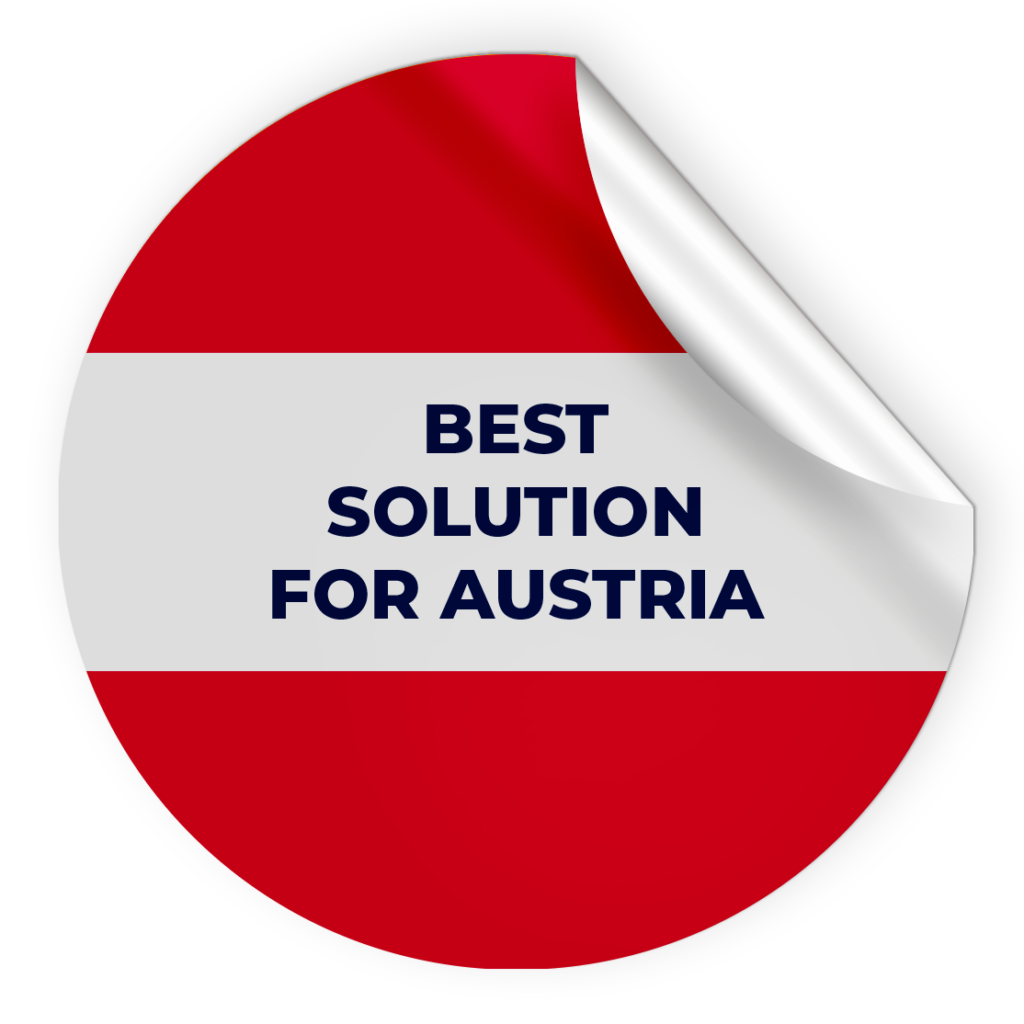The European Packaging Waste Directive
The German Packaging Act of 2019 should meanwhile be familiar to all producers and dealers of goods. Registration with the ZSVR, reporting and licensing of annual packaging quantities with a dual system – for most (online) retailers and manufacturers it is clear what needs to be done in Germany to prevent warnings and penalties.
At the European level, the EU Packaging Directive stipulates how EU members must hold manufacturers and retailers responsible.
- But what specifically applies to the other EU countries?
- What do online retailers or German exporters who send goods to customers in other EU countries have to consider?
We explain the packaging requirements in all EU countries and tell you what to look out for in order to avoid high fines or sales bans.
Different implementations of the packaging directive in the various countries make things difficult
Even if the EU directive on packaging sets the framework, many EU countries implement this differently in their national legislation. Different deadlines for reports to authorities, different definitions of packaging and material, language hurdles and, time and again, small national peculiarities make a fast, legally compliant reporting of packaging quantities a huge administrative task for small and medium-sized companies. The costs of legally compliant participation in dual systems in the EU member states also vary greatly from country to country. And because quantity reports and system participation take place annually, a large part of the effort starts anew every year.
Whether international online retailer, medium-sized industrial company with customers all over Europe or exporter: The EU packaging directive does not make it easy for all of them to comply with. In order to avoid warnings and high fines, we have written a small guide on how affected companies can still meet their obligations from the packaging ordinance throughout the EU with little effort.
These obligations apply in the EU countries
With our interactive map, you can quickly get an initial overview of the countries in which you are required by local law to license the packaging. Simply select a country to which you want to send products with packaging and see what needs to be considered.

Select a country ...
Click a country on the map to learn more about its specific regulations regarding the European Packaging and Packaging Waste Directive. You will get information about what actions producers need to take in order to comply with the local laws.
The quick solution: EU-wide packaging license
When researching which obligations in terms of the packaging law apply to which country and how this obligation is then to be fulfilled in accordance with the law, we first realized how time consuming it is. Therefore, we would like to introduce you to two providers who provide intelligent action guidelines for each individual EU country on their digital platforms at a very good price-performance ratio.
Lizenzero.EU
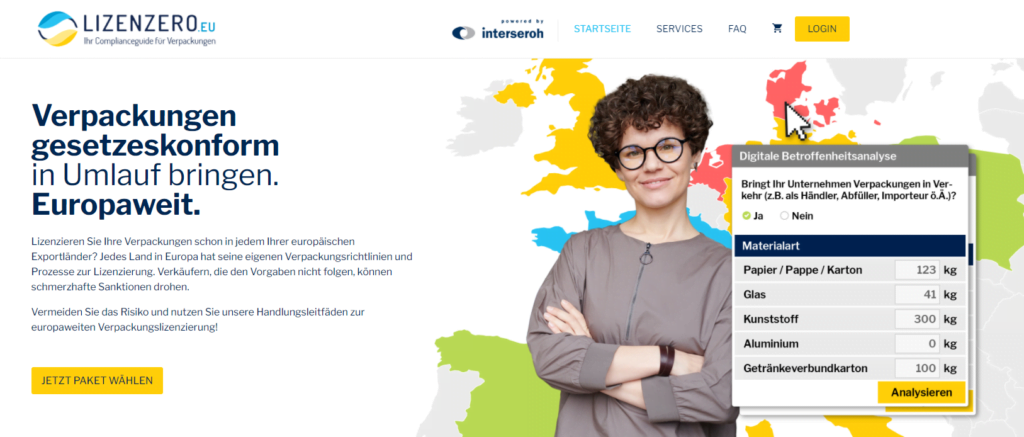
Lizenzero.EU is simple, completely digital, time-saving and helps you with EU-wide compliance in terms of packaging law. No contract term and no subscription model.
Partner offer¹: 10% discount
with discount code: VGL10
Lizenzero.EU
- Usability of platform
- More than 25 years experience
- Action guides per country
- Discount code 10%: VGL10
Ecosistant
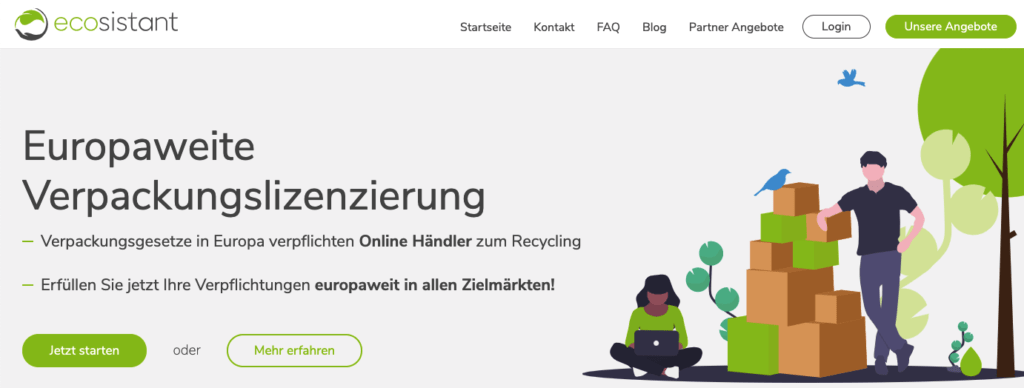
Ecosistant is fast, agile, multilingual, and with the low-cost subscription model you always stay up to date on EU-wide packaging licensing and never miss a change in the law.
Partner offer: 10% discount
with discount code: vpcksvgl10
Ecosistant
- Usability of platform
- Multilingual
- Europe-wide for 30 countries
- Action guides per country
- Discount code 10%: vpcksvgl10
¹Valid until December 31, 2021. Discount on the net value of the goods. No payout possible. One voucher can be redeemed per order and customer. No combination with other discount campaigns possible. Subsequent redemption not possible. The judges’ decision is final.
*If a contract is concluded with a provider via a marked partner link, we receive a commission. This does not increase the license price at the respective provider and there are no additional costs.
EPR Registration Number
Are you an Amazon or eBay merchant selling products in Germany? Then you need to enter your EPR registration number for packaging material in your seller account by 01.07.2022 to continue shipping to Germany! We can show you how to easily get this number.
An overview of EU-wide regulations on packaging guidelines
We have written a brief overview of the local packaging guidelines for the individual EU countries as well as for UK, Norway and Switzerland. This should only serve as an initial assessment of whether you are obliged to work in the respective country. Due to the large number of different legal regulations in the EU member states, we cannot guarantee that the information is 100% up-to-date.
In order to obtain a legally reliable statement on the obligations per country in individual cases and to avoid sanctions or fines, we recommend commissioning a professional provider for EU-wide packaging licensing. With our partners Lizenzero.eu* and Ecosistant* you will receive a tailor-made audit of your obligations according to the EU packaging directive in Europe.
Get straight to the country of interest:
Belgium
- Affected foreign online retailers can join the FostPlus return system
- The responsible Belgian authority is the Interregional Packaging Commission (IVK)

Bulgaria
Bulgaria has implemented the EU directive with the Waste Management Act. It defines obligated persons who are responsible for reducing, avoiding, collecting and recycling their packaging that is generated in the Bulgarian market.
These are typically manufacturers and importers of packaged goods, but also expressly dealers from abroad who sell directly to end consumers. Online retailers are therefore also subject to the same obligations and must ensure that all of the requirements of the Waste Management Act are properly met for their packaging quantities.
Affected manufacturers / dealers can either organize the collection and recycling themselves, or they join – like most Bulgarian manufacturers – a so-called “recovery organization”, which is essentially comparable to the dual systems in Germany.
If obliged persons cannot show any measures, they are obliged to make a lump sum payment of a certain product fee to the responsible ministry. The level of this fee is then determined by the ministry.
- Providers who act as recovery organizations include ECOPACK and ecobulpack
- The competent Bulgarian authority is the Ministry of Environment and Water

Denmark
- Link to register at the registration office: Erhvervsstyrelsen
- Tax authority to which the tax must be reported: Skattestyrelsen, information page for foreign companies
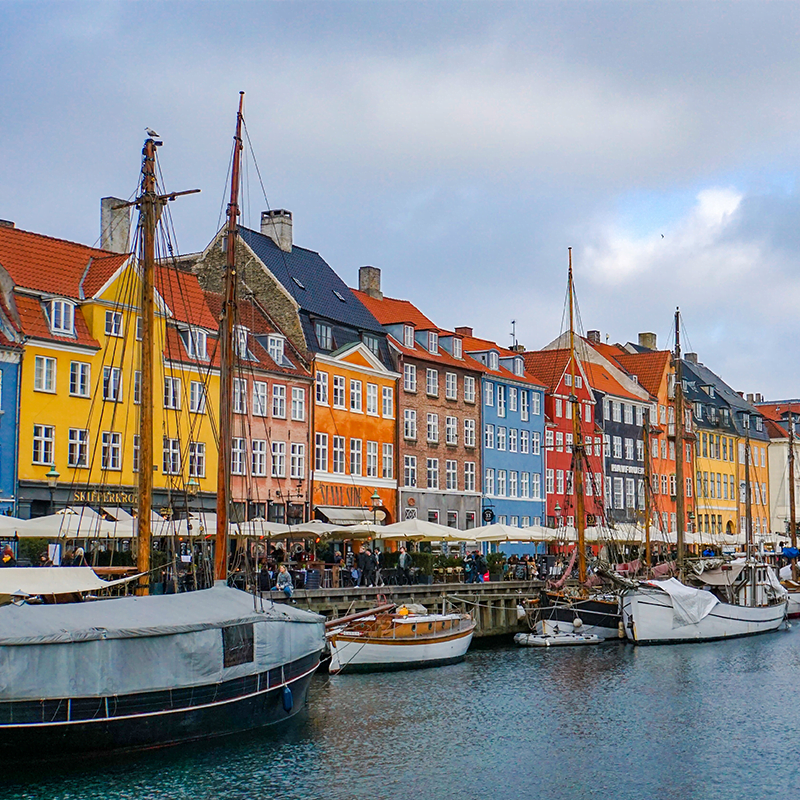
Germany
- You can find more about the topic of packaging licenses in Germany here.
- We have published a comprehensive comparison of providers (including conditions and prices) here.

Estonia
- A registration for the “packaging tax” takes place at the Estonian tax and customs authority EMTA
- Recycling organizations include Eesti Taaskasutusorganisatsioon (ETO), Eesti Taaskasutusorganisatsioon or Tootjavastutusorganisatsioon OÜ

Finland
⚠️ New regulation since 01.01.2024!
In Finland, since January 1, 2024, all companies are affected by the national implementation of the EU Packaging Directive when they put packagings or packaged goods to the Finnish market. The turnover threshold of 1 million euros no longer applies!
Foreign companies and online retailers that sell their products directly to end consumers are considered producers under Finnish law and must register and pay recycling fees for their packaging quantities.
Affected companies and those who voluntarily wish to follow the producer responsibility under the Finnish Waste Act can join the RINKI Recycling System. RINKI will invoice the system operators’ costs to the manufacturer/retailer for all types of materials. RINKI is therefore the central point of contact here. Unlike household waste, manufacturers and retailers must independently organize waste disposal on their premises.

France

Greece
In its introduction of the local provisions for the EU Packaging Directive, Greece also shows great similarities with the model from Germany: Greece also provides for a registration requirement and participation in a dual system for all packaging providers on the Greek market.
Manufacturers as well as importers (in B2B trade) and dealers (in direct B2C trade) are therefore also obliged to do so in Greece. Foreign online retailers are also affected.
Registration takes place in the national manufacturer register (E.M.PA) which is kept at the Heleni Recycling Agency (HRA). When registering, you will receive a manufacturer registration number. In addition, a contract for licensing the packaging materials is concluded with a dual system. Annual quantity reports are also required. Greek law provides for fines and imprisonment for non-compliance.
A special feature applies to traders without a registered office in Greece who send goods directly to end customers (online trade). You cannot register and participate in a dual system yourself, but would have to commission a legal representative in Greece to do so. These can be e.g. a tax advisors in Greece. Another alternative is to have one of our partners such as Lizenzero.eu or Ecosistant organize it.
Link to the overview of the dual systems in Greece: here

Great Britain
- The UK government provides further information on definitions, obligations and costs on an information page.
- A popular environmental service provider and dual system in Great Britain is Valpak

Ireland
Ireland regulates its national packaging law in S.I. No. 282/2014 – European Union (Packaging) Regulation 2014. According to this, all manufacturers, wholesalers and retailers, distributors and importers must ensure that the packaging they put into circulation is collected and recycled. However, there are limit values up to which companies have no obligations under the law: Companies are exempt from the measures if
- their annual turnover in Ireland is less than EUR 1 million and
- they put less than 10 tons of packaging material into circulation per year
Companies affected by the law (“major producers”) can either organize their manufacturer’s obligation independently as a “self-complier” and submit plans for this to the local authorities, or they can join the Irish compliance program Repak. At Repak, an annual fee is charged and there is an obligation to provide information about the amount of packaging put into circulation every six months.
Information about the costs and types of membership at Repak: here

Italy
Disposal and recycling of packaging is largely made possible in Italy by the national packaging consortium CONAI. The packaging manufacturers, users, manufacturers and importers, as defined in the relevant Italian legislative decree, must contribute to facilitating the collection and sorting of packaging waste. There is no differentiation between different types of packaging (sales, transport, dispatch, service packaging) and B2B / B2C. 90% of the companies have joined CONAI, the rest organize the collection and recycling themselves or rely on reusable systems.
Foreign companies without a permanent establishment in Italy are not obliged to join CONAI (point 2.4 of the CONAI guide). Most online retailers should therefore not have any further obligations. You can join CONAI voluntarily if you have an Italian VAT ID or if a fiscal representative carries out the registration on behalf of the foreign company.
Affected companies can find out more about the registration process and the fees per packaging type on the CONAI website:

Croatia
The Croatian implementation of the EU packaging directive took place in the regulation on packaging and packaging waste. The ordinance defines the companies concerned as “manufacturer”, the term “packaging” and the fee system according to which manufacturers have to contribute to the costs of collecting, sorting and recycling packaging waste.
- Manufacturer: Anyone who manufactures, markets or imports packaging in Croatia. Croatia does not differentiate between B2B and B2C trade, which is why all foreign companies can also be regarded as manufacturers.
- Packaging: All products of any kind and of any material that enclose goods and are used for the shipping, storage and presentation of goods.
According to the regulation, all manufacturers must meet minimum collection and recycling targets for all of their packaging put into circulation in Croatia. This obligation is met by a disposal fee paid by the manufacturer. There are additional regulations for beverage packaging in the form of a deposit system.
The fee is paid to the Croatian Fund for Environmental Protection and Energy Efficiency, with which manufacturers must register. The fund then takes over the implementation of the statutory targets for you with the manufacturer’s fees.
There is a “small manufacturer regulation” according to which manufacturers are exempt from the obligations of the regulation if they do not exceed all of the following quantities of packaging per year (as of 02.2021):
- max. 300 kg glass
- max. 100 kg paper / cardboard / carton
- each max. 50 kg metal packaging, plastic, wood, other materials
Further information on the calculation of fees for affected companies can be found here.
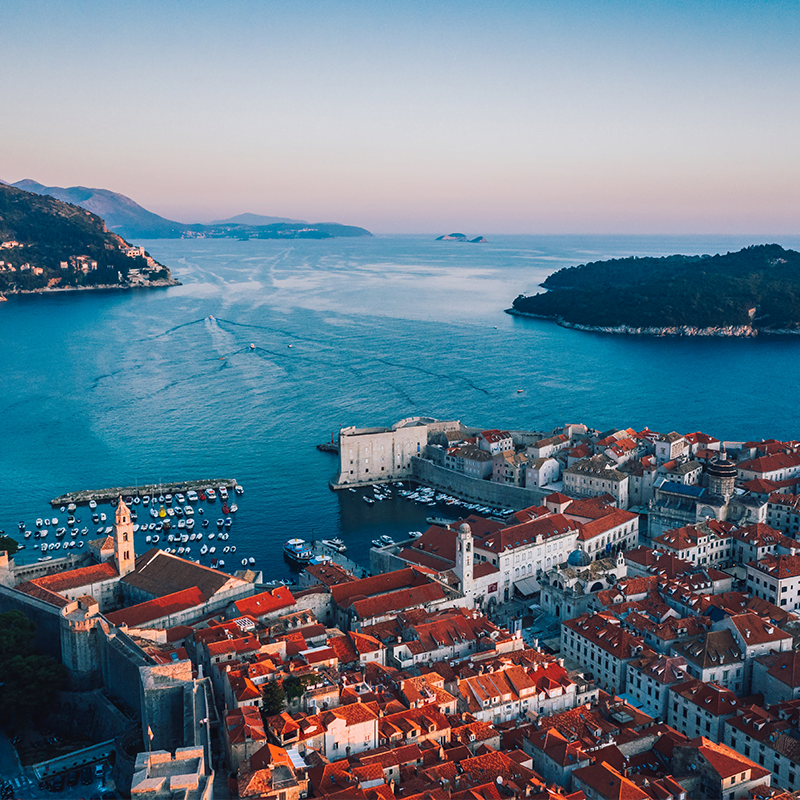
Lettland
In its national packaging law, in conjunction with the tax law for natural resources, Latvia has provided for a packaging tax as well as an alternative participation in a “producer responsibility program”, which means that the tax can then be waived. All manufacturers or importers who introduce packaging into the Latvian market, including foreign online retailers, are affected by the packaging tax.
The consumption tax for packaging is calculated according to kg per material fraction and is, for example, € 1.22 / kg for plastic and € 0.24 / kg for paper / cardboard / cardboard.
Companies that bring more than 300kg of packaging material onto the market per year can either pay the packaging tax or join an existing producer responsibility program (similar to the dual systems) and pay an annual license. The providers include Latvijas Zaļais punkts, Zaļā Josta and Zaļais centrs.
- Competent authority of the Latvian Ministry of the Environment: Environment State Bureau (ESB)
- The German Chamber of Commerce can provide further information on the payment of the packaging tax (Natural Resource Tax)

Lithuania
In Lithuania, with the implementation of the EU directive, as in Germany, a public register (GPAIS) was introduced in which all manufacturers and dealers must register and submit regular reports that bring packaging onto the market in Lithuania. The regulation also stipulates that economic operators must bear the costs of collecting, sorting and recycling their packaging put on the market in Lithuania, as well as providing education and information for the public.
Affected people can either organize this individually or join a collective system that performs the tasks. One provider is, for example, ŽALIASIS TAŠKAS.
According to our research, the obligation to participate in the system only applies from an annual quantity of 500 kg of packaging material. However, registration with GPAIS is necessary in any case.

Luxembourg
The Luxembourg law on packaging and packaging waste defines “those responsible for packaging” and their duties. Anyone who packs goods, has them packaged in Luxembourg or imports packaged goods from abroad is responsible for packaging. These are usually the manufacturers or, in the case of B2B imports, the Luxembourg importer who is noted on the invoice. (Online) dealers based abroad who sell goods directly to private end consumers are also affected.
De minimis limits do not apply. The obligations apply from the 1st packaging.
All producers and merchants must ensure that their packaging is collected and recycled in order to achieve the legal targets for the reuse of packaging. They also need to report their quantities to the authorities. They can either organize all duties on their own or hand all duties over to the environmental company Valorlux. By paying an annual fee (minimum 50€), the obligations can be fulfilled. Industrial packaging is an exception: Here the companies have to take their own measures for disposal and recycling.
- The responsible authority is the Luxembourg Environment Agency
- Information on registration, fees and reporting deadlines at Valorlux: here

Malta
Malta has also implemented the EU packaging directive into national law. With the Maltese regulation on packaging and packaging waste. This affects dealers, manufacturers and importers alike who manufacture packaging of any kind or who place it on the market in Malta. You are responsible for collecting, sorting and recycling your packaging materials.
All of the companies concerned must connect to a recycling management system for their consumer packaging (sales, outer and transport packaging) that they put into circulation. In the case of commercial packaging, companies can decide whether to commission a recycling management system or to organize the recycling themselves.
Companies that put less than 100 kg of packaging on the market in Malta per year are exempt from the obligations and do not have to join any system.
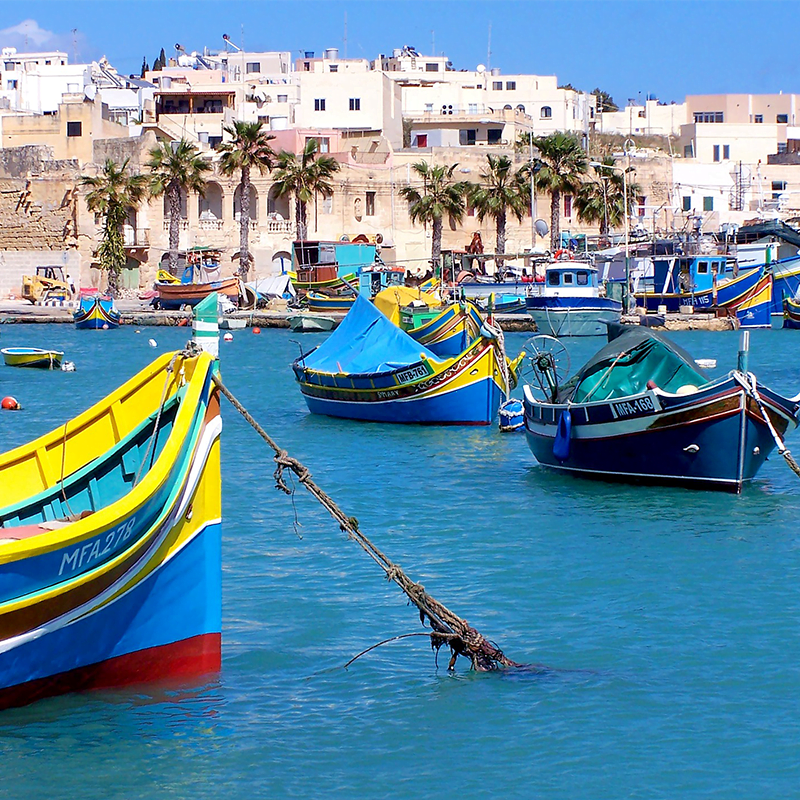
The Netherlands
To finance the collection and recycling of packaging, the Netherlands levied a packaging tax until 2012. With the implementation of the new EU packaging directive, this was converted into a waste management contribution with which the packaging waste fund (Afvalfonds Verpakkingen), established for this purpose, finances municipal waste disposal and recycling.
The waste management fee must be paid by companies if they put more than 50,000 kg of packaging material into circulation in the Netherlands each year and also meet at least one of the following conditions:
- The company (producer or importer) is the first company in the Netherlands to place the packaging on the market.
- The company is the first in the Netherlands to remove packaging from products and dispose of it.
- The company puts the other company’s name, logo or brand on packaged products on behalf of another company.
- The company uses commercial packaging to package products.
- The company makes commercial packaging available to third parties in the Netherlands or offers it together with one or more products.
- The company circulates plastic bottles larger than 0.75 liters without a deposit in the Netherlands.
Foreign (online) retailers are also obliged to pay the premium if they deliver to end customers in the Netherlands and import more than 50,000 kg of packaging per year.
The contribution is paid annually to the waste fund and is made up of system costs and variable material costs
Information on fees for the waste management fee: here

Norwegen
In Norway, a relatively clear legislation regulates the recycling of packaging. The national waste ordinance stipulates that each of the packaging filled with goods or placed on the market must join a take-back system so that collection and recycling can be ensured. Usually manufacturers and importers in Norway are affected. In the case of foreign companies without a registered office in Norway, the domestic importer is always affected. Foreign dealers who ship directly to end customers in Norway are not affected by the law.
In addition, all companies that put less than 1,000 kg of packaging into circulation in Norway per year are exempt from the obligation to participate in the system. Affected companies can, for example, participate in the Grønt Punkt Norge or Norsirk systems.

Austria
In Austria, two laws regulate the handling of packaging and its recycling. The Packaging Ordinance 2014 (VVO) and the Waste Management Act 2002 (AWG). This regulates which companies must take precautions to avoid packaging waste as much as possible and to collect, reuse or recycle unavoidable packaging. Manufacturers and importers, packers in Austria and foreign traders are affected if they deliver directly to end consumers in Austria. You have to comply with the legal regulations for your packaging brought onto the market in Austria.
In Austria, a distinction is made between household packaging and commercial packaging.
Household packaging:
- Packaging up to and including 1.5 m2 / hollow body with a nominal volume of up to and including 5 liters or expanded polystyrene (EPS – e.g. Styrofoam) up to and including 0.15 kg, which are used in private households or in comparable sources, such as B. restaurants, hotels, hospitals etc. (§ 13h AWG)
- Service packaging, such as B. Carrier bags, knot bags and sales packaging made of PPK and corrugated cardboard (§ 3 Z. 7 VVO)
Commercial packaging:
- Packaging that is not household packaging
- Transport packaging (§ 3 Z. 4 VVO)
- Tray foils, pallets as well as strapping and adhesive tapes
- Packaging that is household packaging, but is exempt from obligation as commercial packaging due to the quota in the packaging delimitation regulation (observe product groups).
Household packaging must be licensed with a recognized Austrian dual system. Commercial packaging must also be licensed with a dual system starting in 2023. The Federal Ministry has published a list of recognized dual systems here. Many German dual systems have branches in Austria, such as Interseroh, Reclay, Der Grüne Punkt (ARA) and Landbell (ERP). If a German license agreement already exists, an Austrian agreement can often be concluded with little effort.
On our dedicated info page on the packaging law in Austria, you’ll find a detailed explanation of all obligations, exceptions and special features including a price calculator with all providers: Go to our info page with the cost calculator

Poland
In its packaging law, Poland relies on double reporting of packaging quantities from affected companies, similar to Germany. In the law on packaging and packaging waste management, the state regulates its approach to extended manufacturer liability. It contains requirements for the packaging placed on the market and regulates the recycling and handling of packaging waste. In addition, rules are drawn up for determining and collecting the product fee and the recycling fee. The provisions apply to all packaging regardless of the material.
The law defines affected companies as “importers”. An importer is any company that manufactures or imports packaging and packaged products. This also explicitly includes foreign (online) dealers of all kinds.
On the one hand, there is an obligation to register with a state register for all importers, the BDO (similar to the ZSVR in Germany). Foreign companies need a PESEL number for registration. The BDO has to submit an annual report on annual quantities, plastic bags issued and the recycling rate achieved.
Important: The BDO registration number issued must be present on all sales documents when goods are sold in Poland. Otherwise there is a risk of penalties and sanctions!
The second obligation consists in making a contribution to the fulfillment of the legally prescribed recycling quotas. This can be done either by paying a high product fee to the state BDO, or by a much cheaper participation in a waste recycling organization (dual system), which complies with the company’s legal obligations to collect and recycle packaging waste.
- Providers of such waste recycling systems are, for example, Interseroh and Rekopol

Portugal
A corresponding regulation was issued in Portugal for the implementation of the EU packaging directive. This defines companies that are responsible for the collection and recycling of the packaging they put into circulation in Portugal and that have to achieve the prescribed recycling rates.
All manufacturers, packers, importers and dealers who bring packaging onto the market are affected. A Portuguese company must always be responsible for service packaging. Companies from other EU countries without a Portuguese VAT ID are not required in principle.
For the recycling of B2C packaging that occurs at the end consumer, all those responsible must register with a dual system and pay license fees for their packaging quantities on the basis of an annual report. The dual system is the Sociedade Ponto Verde. This is where you register and pay the fee. The annual report on the quantities must be submitted by March 15 of the following year. Companies with an annual turnover of less than € 100,000 only pay a lump sum of € 120 per year. With the fees of the members, the dual system finances the municipal disposal of waste and ensures recycling.
Companies that generate commercial packaging in Portugal have to organize the disposal and recycling of this packaging themselves.
- Information on fees and reporting requirements for the Sociedade Ponto Verde dual system: here

Romania
In Romania, the EU Directive is implemented through the Packaging and Packaging Waste Management Act. The regulations apply to all types of packaging placed on the Romanian market, regardless of material and use (B2B and B2C packaging are affected). Manufacturers and importers must take back the packaging they have put into circulation and ensure that the waste is recycled.
Affected companies can either organize the return and recycling of their packaging independently and report it to the state environmental fund administration on a monthly basis or join a collection and recycling system for a fee.
If the statutory recycling quota is not met, a packaging tax is due. When participating in a collection and recycling system, the system provider is liable if a packaging tax is incurred because the extended manufacturer responsibility has been transferred to him.
- The providers of such Romanian collection and recycling systems are Eco-Rom Ambalaje or Clean Recycle

Sweden
Sweden’s Waste Ordinance regulates the handling of packaging waste. There is also a separate deposit system for beverage packaging (glass, PET and aluminum).
Until 2020, only Swedish companies that put packaging filled with goods into circulation in Sweden were affected by the Waste Ordinance. This is either the Swedish producer or, in the case of imports from abroad, the Swedish importer. For foreign traders who ship directly to end consumers in Sweden, the same obligations under the Waste Ordinance have existed since 01.01.2021.
Affected distributors must join an approved take-back system and pay a fee according to their quantities and types of material. For glass packaging, billing is based on pieces and volume.
Overview of take-back systems in Sweden
- FTI AB
- TMR
- For glass packaging: Svensk Glasåtervinning AB

Switzerland
Switzerland is not a member of the European Union and is therefore not bound by the EU Packaging Directive. There is no separate packaging ordinance or similar law in Switzerland. The only legal basis that also affects packaging is the general Swiss environmental protection law.
Overall, the system in Switzerland is based on voluntary compliance with the polluter pays principle by those placing on the market, general principles for avoiding and recycling packaging, as well as a deposit system for beverage packaging.
An advance disposal fee (VEG) is charged on glass bottles. Voluntary, private-sector systems exist for PET beverage bottles, aluminum cans and tinplate cans, which are financed through an advance recycling fee (VRB).
The cantons are responsible for the disposal of other packaging waste. As a rule, recycling is ensured in Switzerland. The system works well, as manufacturers and importers generally show solidarity and take the avoidance of packaging and voluntary recycling efforts seriously.
Information from the responsible Federal Office for the Environment (FOEN) on handling packaging in Switzerland: here

Slovakia
In Slovakia, the 2015 Waste Act, expanded in 2019, regulates the European Packaging Directive. The return and recycling of packaging must therefore also be ensured in Slovakia by the distributor. These are manufacturers and dealers. Foreign traders without a registered office in Slovakia are also affected by the obligations if no national importer ensures compliance with the legal requirements.
Affected companies can take their own measures, but these must then be authorized by the Ministry of the Environment. The most common solution in Slovakia is therefore to commission a dual system that ensures that manufacturer responsibility is fulfilled. These collection and recycling systems are called Organizácie zodpovednosti výrobcov (OZV) in Slovakia. Here, too, the fees depend on the type and quantity of packaging materials.
There is also an obligation to register for the various product types in the manufacturer’s register. There are separate registers for distributors of packaging, unpackaged goods, electrical appliances, as well as for car manufacturers, tire manufacturers and battery manufacturers. An annual report must be submitted about packaging quantities that have been put into circulation.
- The competent authority is the Slovak Ministry of the Environment
- List of approved OZV: here
- Link to the manufacturer register for packaging: here

Slovenia
In the Ordinance on the Disposal of Packaging and Packaging Waste Slovenia regulates the national implementation of the extended producer responsibility, according to which companies that put packaging on the market first and do not pay any environmental tax should register and pay into a system for collection and recycling according to their packaging volume and register in a manufacturer register.
This affects manufacturers, packers, importers and traders who bring more than 15,000 kg of packaging into circulation in Slovenia every year.
Affected companies must register in the national manufacturer register. The type and quantity of the packaging put into circulation are then stored there, as well as information on the commissioned recycling system. However, this registration and notification obligation currently only applies to companies with a Slovenian commercial register number, as this is necessary for registration in the register.
Registration with a collection and recycling system must take place in parallel. Only the above-mentioned minimum limit of 15,000 kg applies here. No disposal contributions have to be made below this threshold.
- One provider of a collection and recycling system is Slopak

Spain
In Spain, legally compliant compliance with the statutory provisions from the national packaging law must be ensured with a central system that ensures the recycling of packaging waste in Spain.
According to the law, every company has to take part in this system when putting packaging into circulation in Spain. Manufacturers, importers and foreign online retailers must submit to this licensing requirement and register with the Spanish waste disposal service provider Ecoembalajes España S.A. (Ecoembes) pay a disposal fee for their annual packaging. The quantities must be reported annually. The regulation only applies to packaging that is generated as waste by private end consumers. B2B packaging is not affected.
Depending on the amount of packaging, either the simplified procedure or the normal procedure can be used. If a distributor has to report less than 12,000 kg per year, a flat rate can be paid (from 284€/year for 2023 at Ecoembes). For quantities over 12,000 kg per year, the fixed kg prices, which are set annually, must be paid. In addition, there are stricter documentation requirements when calculating the total annual amount.
- Ecoembes’ fee table for the normal and the simplified procedure: here
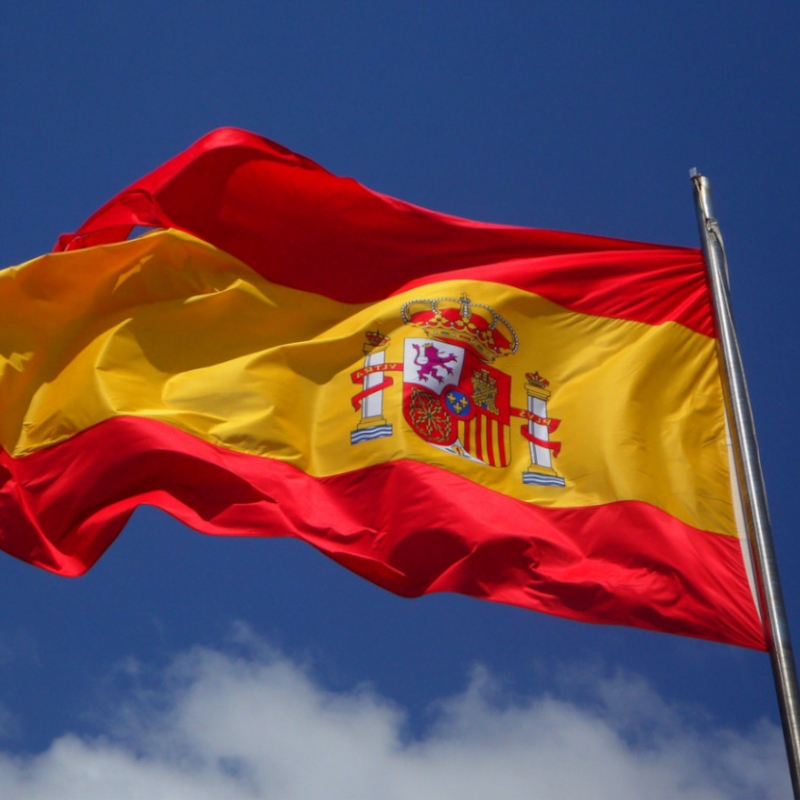
Czech Republic
The Czech Republic also regulates the implementation of the EU directive in a packaging law. It states that for B2C packaging, the person who brings it to market in the Czech Republic is responsible for proper disposal and recycling. These can be manufacturers, importers and dealers. Foreign dealers who ship to customers in the Czech Republic are also affected by the Packaging Act and its obligations! There is an exception for all companies that put less than 300 kg of packaging into circulation in the Czech Republic and that do not exceed an annual turnover of CZK 25 million (EUR 952 thousand).
According to the law, the companies concerned have the following obligations:
- Ensuring the return and recycling or reuse
- Participation in a dual system, in the licensing of the packaging and maintenance of the records on the types and quantities of packaging and packaging waste
- Registration with the Czech Ministry of the Environment
- annual evidence from the records to the Czech Ministry of the Environment
The fulfillment of these obligations can be guaranteed by licensing the respective annual quantities with the dual system EKO-KOM. It is the only system that is currently approved in the Czech Republic. With the commissioning of EKO-KOM, the obligations of the Packaging Act, including the registration and reporting obligations to the Ministry of the Environment, are completely transferred to EKO-KOM.
- The responsible authority is the Ministry of the Environment of the Czech Republic
- Information on fees at EKO-KOM: here

Hungary
2 laws provide the basis for the regulations of the extended producer responsibility for packaging in Hungary: a law that prescribes a product tax for environmental protection and a government regulation on the subject of waste management in relation to packaging waste.
The legislator has defined de minimis limits for packaging quantities up to which producers and traders have no further obligations in Hungary in connection with the product fee.
- 3000 kg glass
- 30 kg of plastic – not counting plastic shopping bags for advertising purposes
- 75 kg plastic shopping bags for advertising purposes
- 300 kg of mixed or coated packaging materials
- 500 kg of packaging materials made of paper or wood and natural-based textiles
- 300 kg of metal packaging materials
- 300 kg of other packaging materials
If the packaging materials put on the market in Hungary every year go beyond these limits, manufacturers, dealers, importers and every other distributor must pay a flat-rate product fee to the tax authorities for their quantities. In addition, the tax authorities must be provided with an interim status on the type and quantity of packaging materials every quarter.

Cyprus
In Cyprus, the “Law on Packaging Waste” regulates responsibilities for the disposal and recycling of packaging. The extended manufacturer responsibility therefore applies to commercial, industrial and household packaging and sees everyone who brings packaging onto the market in Cyprus an obligation. These are manufacturers, dealers, importers and packers.
One of the obligations is an annual report of packaging quantities to the competent Cypriot authority. Affected companies that bring more than 2,000 kg of packaging onto the market per year must also participate in the dual system that organizes local waste collection and recycling in Cyprus.
- The responsible body in Cyprus is the national environmental authority
- A dual system in Cyprus, for example, is Green Dot Cyprus

EPR Registration Number
Are you an Amazon or eBay merchant selling products in Germany? Then you need to enter your EPR registration number for packaging material in your seller account by 01.07.2022 to continue shipping to Germany! We can show you how to easily get this number.


